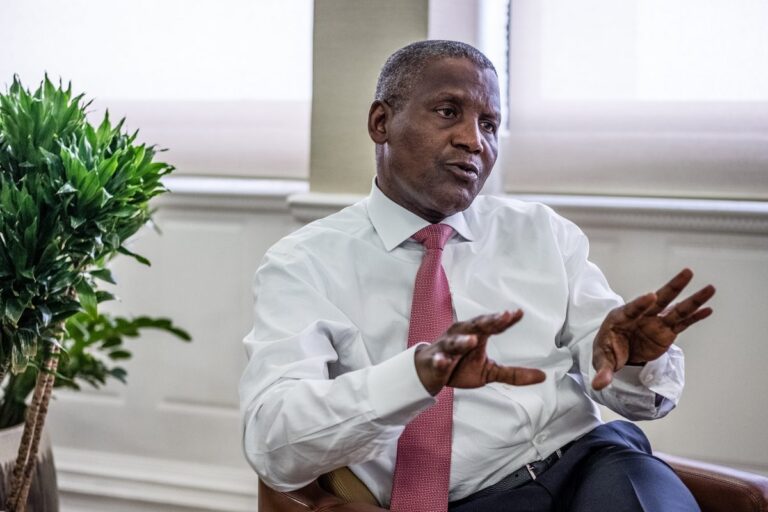The Nigerian government has lauded billionaire industrialist Aliko Dangote for prioritizing national development over potentially lucrative investments in global tech giants. This praise came during a tribute that highlighted the significance of the $19 billion Dangote Refinery—the world’s largest single-train oil refinery.
At the Taraba International Investment Summit 2025 in Jalingo, Vice President Kashim Shettima, representing President Tinubu, celebrated Dangote’s visionary choice to invest in Nigeria rather than in international tech companies such as Microsoft, Amazon, or Google.
“I want to celebrate the greatest black man in the last 300 years, who single-handedly established the largest single-train refinery in the world,” Shettima said.
“If he had invested the $19 billion used to build the Dangote Refinery in companies like Microsoft, Amazon, or Google, his net worth today could have been $120 billion. But he chose to invest in his own country. Alhaji Aliko Dangote, we are mighty proud of you.”
Shettima emphasized that Nigeria’s economic transformation must be rooted in grassroots development and fueled by homegrown resources.
The Dangote Refinery: Africa’s Largest and Most Ambitious Project
The Dangote Refinery, capable of processing 650,000 barrels of crude oil daily, stands as Africa’s largest refinery and a symbol of Dangote’s commitment to Nigeria. Following the refinery’s launch, Dangote’s net worth doubled to $28 billion, cementing his status as the richest man on the continent.
The refinery is set to drastically reduce Nigeria’s dependence on imported refined petroleum products—a challenge that has plagued the country for decades.
Though delayed for several years, the refinery officially started production of diesel, naphtha, and jet fuel in January 2024, with petrol production commencing in September the same year.
This massive facility surpasses the combined capacity of Europe’s 10 largest refineries, and according to OPEC, Dangote’s oil venture is already beginning to reshape the European oil market.
Economists suggest the refinery could eventually end the $17 billion annual gasoline trade from Europe to Africa, marking a historic shift in the continent’s energy landscape.

